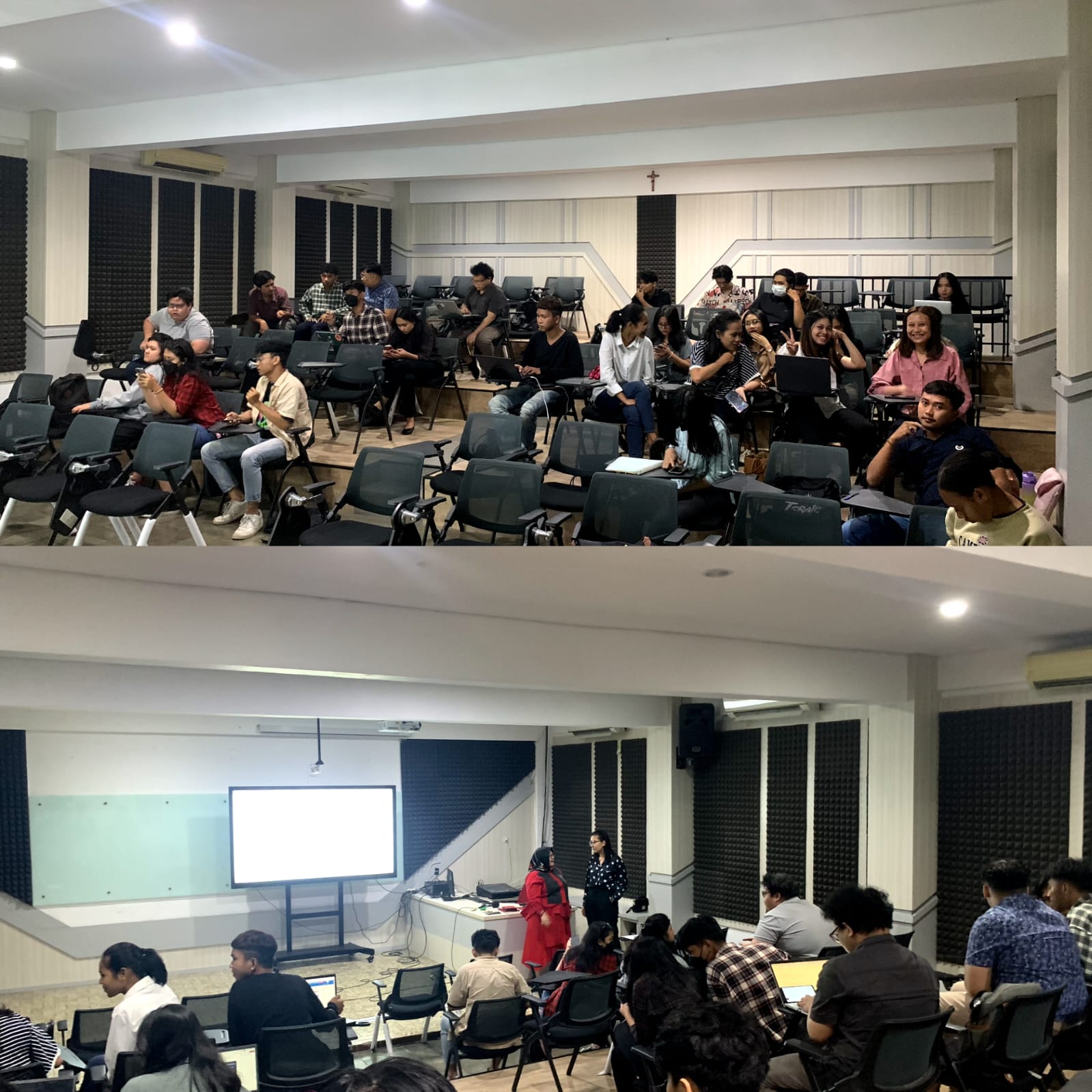Pembuatan Perjanjian Internasional dan Dinamika Dalam Berdiplomasi Oleh Negara Pihak
-
Tim Multimedia Fakultas Hukum
- 22 Dec, 2023
- Akademik
- 608
Senin lalu (11/12/23) Fakultas Hukum Universitas Atma Jaya Yogyakarta kembali menyelenggarakan kuliah umum Praktisi Mengajar dengan mengundang Nurhasanah Arumsari Sihombing, S.H., LL.M. selaku narasumber yang berasal dari Sekretariat Diektorat Jenderal Hukum dan Perjanjian Internasional, Kementrian Luar Negeri Republik Indonesia. Kegiatan ini mengusung tema "Praktik pembuatan MOU/Position Paper. Kuliah umum Praktisi mengajar kali ini merupakan kegiatan lanjutan dari kegiatan yang pernah dilaksanakan oleh Fakultas Hukum Universitas Atma Jaya Yogyakarta pada 14 November, 2023 yang lalu.
Dalam pemaparannya, Nurhasanah menjelaskan bahwa proses pembuatan perjanjian internasional bilateral, terdapat penjajakan kepada counterpart atau negara mitra yang dilakukan untuk melihat apaka ada interest/keinginan yang sama untuk membuat perjanjian internasional. "Yang terpenting, dalam pembuatan perjanjian internasional itu harus terdapat 5 hal yang harus dipenuhi yaitu, politis, yuridis, tidak bertentangan dengan kebijakan yang dilakukan pemerintah, tidak digunakan sebagai tindakan untuk spionase, dan tidak menimbulkan kerugian negara" Jelas Nurhasanah.
Pembuatan perjanjian internasional, erat kaitannya dengan perundingan internasional. Dalam pembuatannya, setiap delegasi yang dikirimkan oleh negara asalnya harus membuat opsi untuk mendapatkan kesepakatan. Rumusan opsi ini berdasarkan kepentingan nasional dari negara tersebut, atau bisa jadi mandat yang diberikan oleh negara kepada delegasi yang ditunjuk. "Dalam perundingan, jangan sampai kita sebagai delegasi tidak mendapatkan hasil. Kita harus membuat opsi-opsi yang nantinya dapat kita berikan selama perundingan berlangsung, namun apabila opsi-opsi primer yang dibuat juga tidak menghasilkan kesepakatan, kita sebagai delegasi juga harus menyiapkan alternative option". Terkait perundingan internasional, proses ini dapat diselenggarakan secara formal dan informal. Nurhasanah menjelaskan bahwa dalam pertemuan formal ditujukan untu menyampaikan kebijakan/posisi nasional, oleh perwakilan negara secara langsung. Dalam praktiknya, pertemuan formal ini harus dipimpin oleh seorang Pimpinan Sidang, atau dalam contoh lain untuk pertemuan bilateral antara dua negara harus dipimpin dengan dua Pimpinan Sidang, dan Kementrian bisa ditunjuk sebagai perwakilan negara ataupun bisa dipimpin oleh Presiden. "Hal terpenting yang harus dimiliki oleh seorang Pimpinan Sidang dalam memimpin jalannya proses diplomasi adalah chair's note. Chair's note ini adalah sebagai pedoman Pimpinan Sidang dalam memimpin jalannya negosiasi". Ucap Nurhasanah.
Lebih lanjut, Nurhasanah memaparkan terkait hal-hal yang penting dalam melakukan Pidato pada saat berpidato dalam forum internasional, yaitu sebagai berikut:
- Intonasi harus tegas dan lugas
- Pronounciation harus jelas
- Pesan yang disampaikan harus jelas
Di akhir sesi kuliah umum, Nurhasanah mengajak seluruh mahasiswa yang mengikuti kelas pada saat itu untuk melakukan praktik negosiasi dengan topik perang yang terjadi di Rusia dan Ukraina. Secara keseluruhan, proses belajar mengajar, dan praktik yang dilakukan oleh mahasiswa berjalan dengan lancar.






